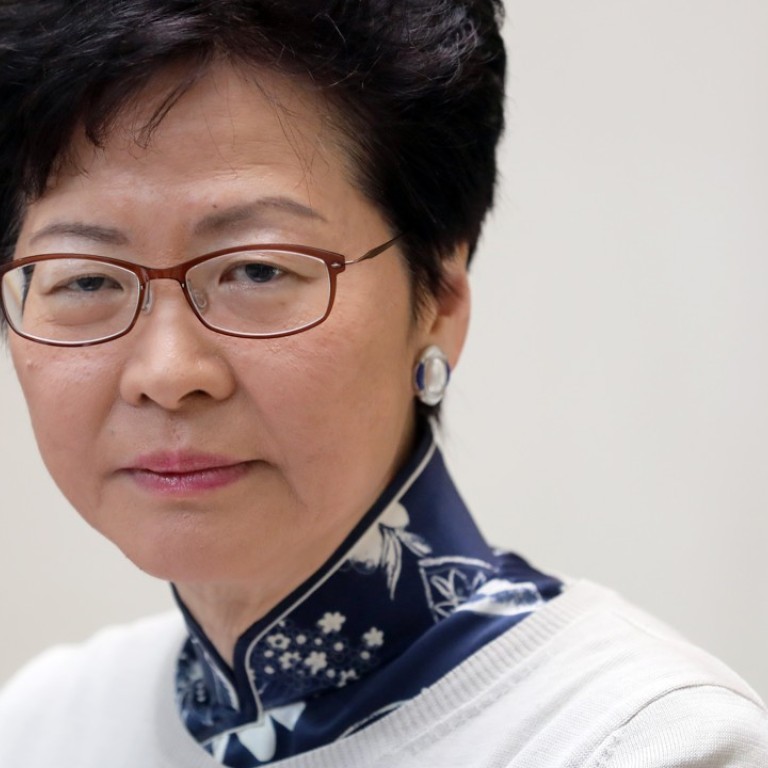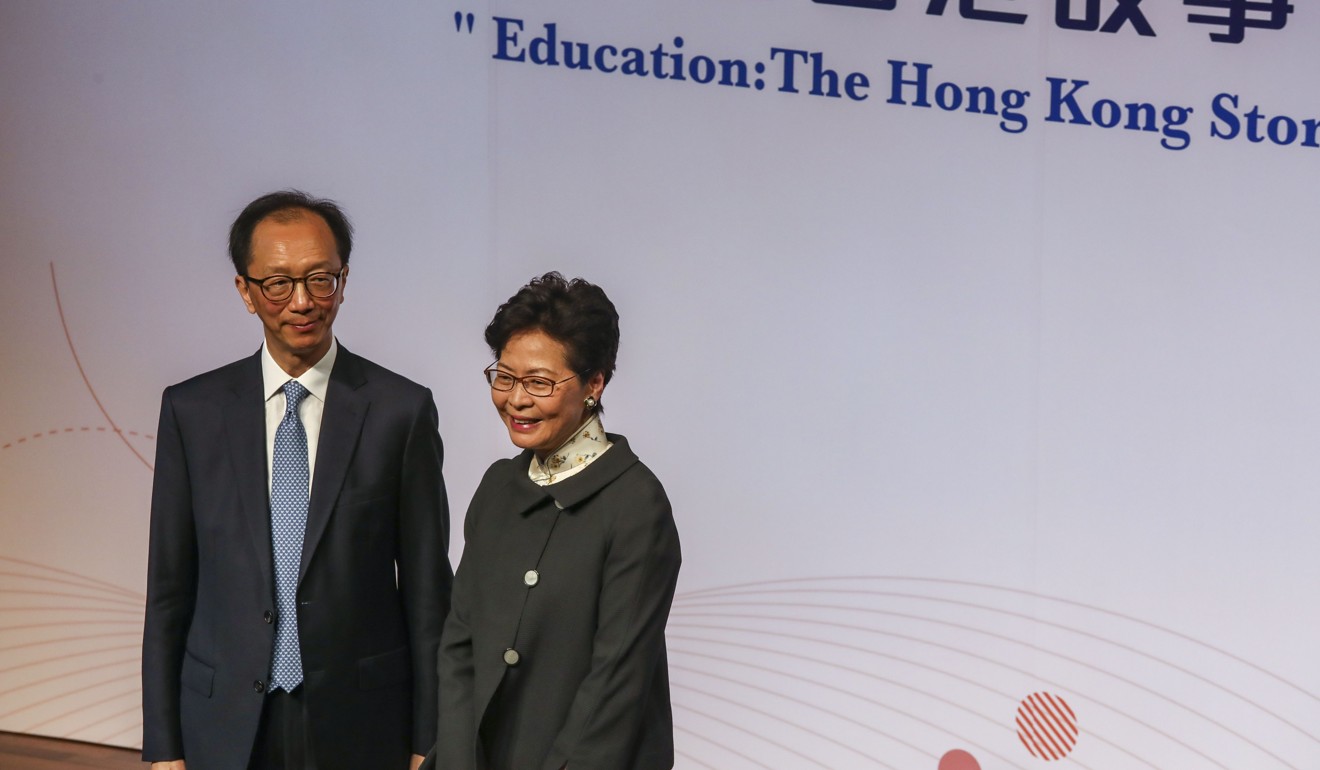
Exam results still fairest way to judge students Hong Kong leader says, as city businessman calls for universities to give greater weight to life experience
- Chief Executive Carrie Lam says focus on anything other than exams would harm students from poorer backgrounds
- If this had been rule I might not have been admitted to University of Hong Kong, city’s leader tells panel discussion
Hong Kong’s leader has dismissed suggestions a student’s learning experience should count for more than academic results when admitting them into university, because she believes it would be unfair to underprivileged pupils.
Chief Executive Carrie Lam Cheng Yuet-ngor was responding to remarks made on Saturday by former financial secretary Antony Leung Kam-chung, a veteran businessman, who has called for a review of the city’s education system.
Leung said the university admission system overemphasises the importance of the Diploma of Secondary Education (DSE) scores, which ignores the students’ other learning experiences and specialities.

“The numbers do not represent the student as a person. Universities should also look at candidates as a whole,” Leung said, when chairing as symposium on education at the University of Hong Kong.
“This will allow our younger generation to enrich their childhood, rather than concentrating on test taking skills and drilling of information all the time.”
But Lam, who attended the event, said while she welcomed the idea of a review, she feared it may disadvantage those who are less well off.
She used herself as an example, noting that if the admissions office at HKU were to put an emphasis on a student’s portfolio, she would have never been admitted, as her strength lay in taking exams.
“While I do agree there’s a need to look into the system to put greater emphasis on students’ learning experiences, I wonder if it would be fair for the underprivileged,” she said.
If education reform is a priority in Singapore and Australia, why not in Hong Kong?
“What about the low income families who struggle to even provide a desk for their children to study on, how would they be able to send their children on study tours, or even after-school courses?”
On her arrival at the venue, Lam was met by members of the pro-democrat party, League of Social Democrats, and an NGO, Alliance for Children Development Rights, who protested over what they said was the chief executive’s lack of concern for grass root students.
The group of about 15 criticised her for not mentioning alleviation measures to better assist youngsters living in poverty in her second policy address.
Some of them urged the government to provide more subsidies for students, rather than setting aside the money for reclamation.
Lawmakers: HK$900 million fund for after-school programmes needs better supervision
Meanwhile, Secretary for Education Kevin Yeung Yun-hung said the government had no plans to follow neighbouring Singapore’s footsteps in reducing the number of examinations for its students.
Primary one and two students will be the first to benefit from the changes, as part of the efforts to reduce the emphasis on academic results.
Speaking to reporters, Yeung said the city will not consider such a change, as Singapore and Hong Kong did not share the same beliefs on education.
He added, however, that the administration was looking into measures to help students cope with their increasingly stressful lifestyles.

